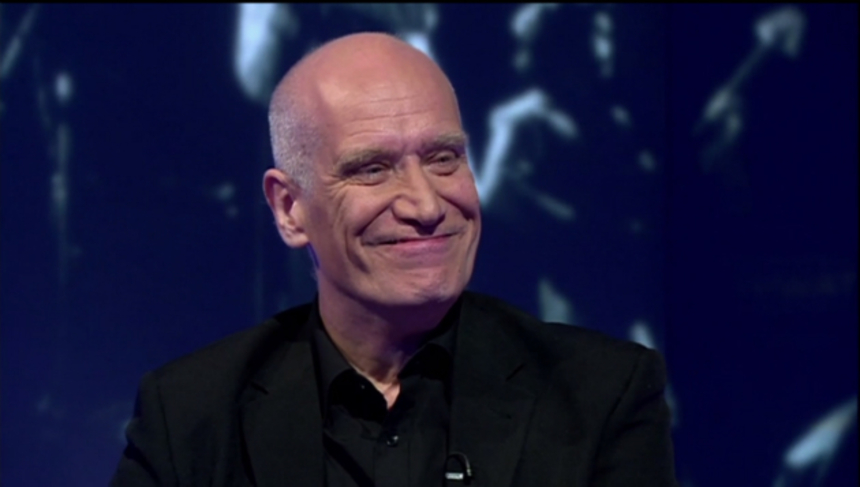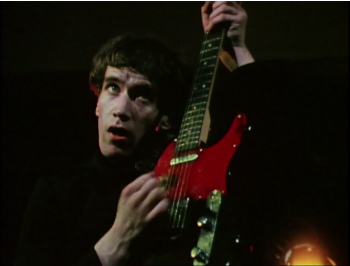SXSW 2015 Review: THE ECSTASY OF WILKO JOHNSON, How To Live When You're Going To Die

This movie may have saved my life. Let me explain.
Not too long ago, Wilko Johnson was told he would die. The musician, a co-founder of pioneering British pub-rock band Dr. Feelgood, received a diagnosis of inoperable, terminal pancreatic cancer. As you might imagine, it sent his world a-spinning. But after giving it some thought, he declined chemotherapy, which might extend his life a couple of months, and chose to enjoy what little time he had left, come what may. For him, that meant (mostly) making more music.
His decision forms the basis of The Ecstasy of Wilko Johnson, a new documentary by Julien Temple that begins from a point of bleakness and quickly expands into a thing of grace and beauty. And, as it happens, I watched the movie at a point of particular self-pity and woe, which normally is not the best time to see a cinematic portrait of a man who's been given a death sentence with the "Expires On" date rapidly approaching as the film plays on.
Yet Johnson's courageous and positive spirit, wrapped in Temple's playful artistry and continuous filmic references, proves to be infectious. Johnson is not a daft sort of fellow, ignorant of the personal consequences of what he's doing; he's keenly aware that some of his most beloved friends and family members are suffering because of his decision. Neither is he a religious man who thinks that spiritual rewards and continued life await him in heaven or the afterlife; he is a devout atheist who is firmly convinced that when he dies, it's all over for him.
 No, Johnson is someone who has weighed everything involved and made an extremely personal decision. Has he considered this? Yes. Has he considered that? Yes. 'I'm going to die and I intend to make the most of life before I do,' he says.
No, Johnson is someone who has weighed everything involved and made an extremely personal decision. Has he considered this? Yes. Has he considered that? Yes. 'I'm going to die and I intend to make the most of life before I do,' he says.
Temple adorns the early going with the aforementioned quotations from selected films; early on, I recognized David Niven in A Matter of Life and Death (Michael Powell and Emeric Pressburger), Jean Marais in Orpheus (Jean Cocteau), and Max von Sydow in The Seventh Seal (Ingmar Bergman).
Moments from those films and others are used to reinforce, illustrate, and counterpoint Johnson as he expresses his thoughts. Temple also utilizes stock and archival footage, concert scenes, and even an interview or two with people other than Johnson -- and yes, that includes biographical details about Johnson, his family, and his career -- but mostly The Ecstasy of Wilko Johnson is a running conversation between the two men, even though we only hear Johnson, for the most part. Temple also fills in a rich portrait with more artistically-driven scenes, in an apparent effort to capture the more whimsical and poignant aspects that are hiding between Johnson's words.
Here's the thing: I wasn't quite suicidal when I started watching The Ecstasy of Wilko Johnson, but I was definitely festering in a deep pit of despair. Through the sparkling mixture of the musician's personality and the filmmaker's talent, the movie made me feel as though Wilko Johnson and Julien Temple reached down, lifted me up, and said, "Now, now, what have you got to complain about? Let's go make some music and maybe a movie or two!" I am neither a musician nor a filmmaker, but I felt a bit of ecstasy as the credits rolled.
SXSW hosts the world premiere of the film today. It screens again on Tuesday, March 17, and Friday, March 20.
The Ecstasy of Wilko Johnson
Director(s)
- Julien Temple
Cast
- Wilko Johnson
- Roger Daltrey







